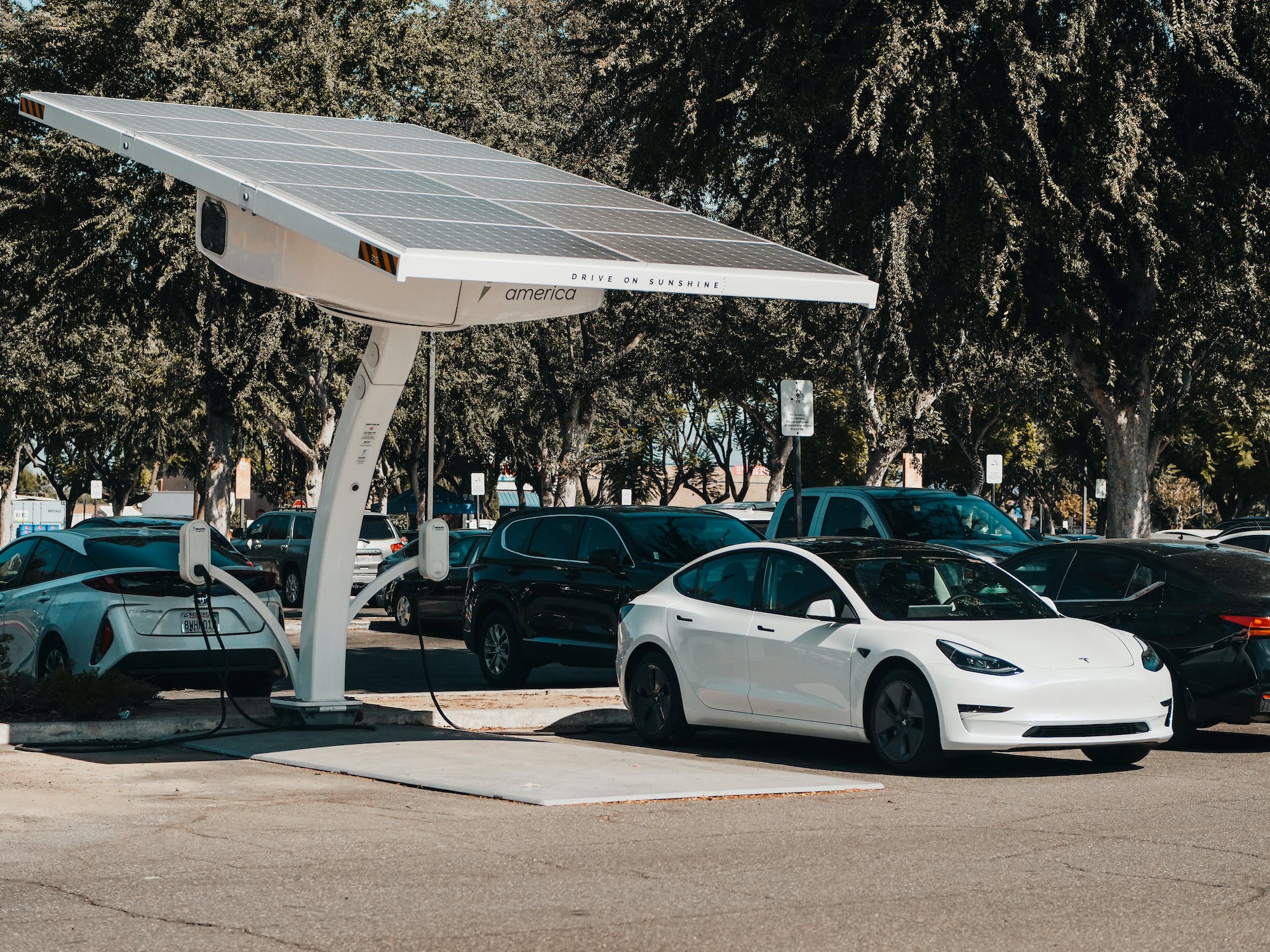Solar Car Parks: Unlocking Clean Energy Potential in the UK

In the pursuit of sustainable energy solutions, car parks across the United Kingdom are emerging as unexpected powerhouses.
No longer serving as mere spaces for vehicles, these areas now host massive arrays of angled solar panels mounted on sleek black steel supports. By harnessing the sun's energy and providing shade for parked cars, solar car parks offer multiple benefits, including electricity generation, protection from harsh weather conditions, and even support for electric vehicle (EV) charging.
This innovative approach is gaining traction globally, with France recently mandating solar panel coverage for large car parks. In the UK, while no such requirement exists, businesses are increasingly turning to solar car parks to reduce long-term energy costs. A recent report by the CPRE and UCL Energy Institute highlights the tremendous potential of transforming British car parks into solar farms, estimating a capacity of 11GW. Although the road to widespread implementation faces challenges, such as grid connection limitations, solar car parks present a promising opportunity to advance clean energy production and work towards achieving net-zero targets.
Solar Car Parks: A Powerful Solution
Car parks have become an ideal location for solar installations due to their expansive open spaces and proximity to energy-intensive facilities like hospitals, shopping centers, and offices. The combination of solar panels and steel canopies not only generates electricity but also shields vehicles from rain, snow, and the scorching summer sun. The French Senate's recent legislation mandating solar panel coverage for larger car parks serves as a significant step toward promoting clean energy. Though the UK lacks a similar requirement, the growing interest in solar car parks is evident as businesses seek to capitalize on on-site renewables to combat elevated electricity prices in the long run.
Tapping into the Vast Potential
A comprehensive report by the CPRE and UCL Energy Institute emphasizes the immense opportunity to transform British car parks into solar farms. Professor Mark Barrett of UCL estimates that the built environment has a solar potential of about 117GW, with 11GW attributable to car parks alone. However, this estimate is considered conservative, taking into account an assumed 130 square kilometers of available car park space, whereas estate agents like Knight Frank estimate the figure to be closer to 200 square kilometers. The report also assumes that 50% of each car park would be covered, leaving significant room for further expansion. To put this into perspective, the UK currently has approximately 15GW of solar capacity and aims to reach 40GW by 2030 to meet net-zero targets, as outlined by Solar Energy UK.
Accelerating Momentum and Success Stories
The adoption of solar car parks is rapidly gaining momentum in the UK. Companies like Praxia Energy from Spain are already supplying around 3MW of car park solar installations each year and anticipate a tenfold increase by 2028.
Veolia, a prominent environmental services company, recently installed a 1.1MW solar canopy system in the car park of Eastbourne Hospital, reflecting the growing demand for solar infrastructure. Solarsense, based in Clevedon, has also witnessed a surge in inquiries. However, Tim Evans, CEO of 3ti, highlights that the UK has been somewhat slow in adopting this technology compared to its continental counterparts, suggesting ample room for growth.
Realising the Benefits
Solar panels in car parks not only contribute to electricity generation but also facilitate EV charging. This functionality is particularly effective in office environments, where cars remain parked for extended periods. Additionally, shopping centers, football stadiums, leisure centers, and cinemas can leverage solar car parks since visitors tend to park for two hours or more, allowing sufficient time for charging.
However, the installation of steel supports for solar canopies does add to the overall cost. In comparison, it is often more economical to place solar panels on the roofs of large buildings, such as supermarkets. The current cost of rooftop solar electricity production stands at around 9p per kWh, whereas solar panels in car parks average around 14p or 15p per kWh, according to Mr. Evans.
Challenges on the Horizon
Despite the advantages, there are a few considerations regarding solar car parks. Richard Watkins at the University of Kent suggests the installation of efficient under-canopy lighting to address potential safety concerns associated with dark spaces at night.
Moreover, one of the significant hurdles hindering many renewable energy projects, including solar car parks, is the lack of grid connections. Excess energy generated by solar panels must be integrated into the grid, but the current limitations in grid infrastructure have put billions of pounds' worth of renewable installations on hold.
Until this issue is resolved, solar car parks becoming a common sight in the UK remains a "distant prospect," as acknowledged by a spokesperson from Solar Energy UK. Regulators like Ofgem and National Grid are actively exploring solutions to expedite grid connections and improve the overall process.
Beyond Car Parks: Exploring Additional Opportunities
Apart from car parks, numerous other locations throughout the UK hold potential for solar installations, helping to reduce reliance on fossil fuels. Newcastle University's Professor Sara Walker points out that cycle paths, railways, and reservoirs suitable for floating solar panels represent alternative avenues for maximising land surface use. Implementing solar photovoltaics alongside existing infrastructure offers the advantage of dual-purpose land utilisation, optimising renewable energy generation while minimising land requirements.
Conclusion
Solar car parks are revolutionising the energy landscape in the UK, presenting a viable solution to increase clean energy production while reducing costs. With the potential to generate an estimated 11GW of solar power, transforming car parks into solar farms aligns with the nation's net-zero targets. Despite challenges related to grid connections and cost considerations, the momentum behind solar car parks is undeniable. As businesses and authorities recognise the benefits of this innovative approach, the landscape of British car parks is poised for transformation, paving the way for a greener future and a more sustainable energy ecosystem.